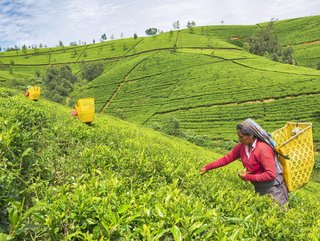Human rights group seeks tea suppliers ESG transparency

The global tea industry supply chain is largely opaque when it comes to ESG compliance, a human rights organisation report says.
The Business & Human Rights Resource Centre (BHRRC) has sought to address this by creating a Tea Transparency Tracker, which contains 3,100 tea estates and factories.
The BHRRC approached 65 companies, asking for disclosure on their tea supply chain, as well as information about their human rights policies and standards.
Thirty-six of the 65 companies did not respond, including Finlays, Sainsburys, Teapigs and Walmart.
The BHRRC says that, of the 29 companies that did engage, 18 fully or partially disclosed their list of sourcing estates or bought-leaf factories.
Just 10 fully disclosed, including Bettys and Taylors, Jenier Limited, Twinings, Ringtons, Tesco, Yogi Tea, East West Tea company, Marks and Spencer, Morrisons and Plus (Superunie).
Those who partially disclosed supplier information include Ahmad Tea, Typhoo, Tetley, Unilever/ekaterra, Starbucks Teavana, Teasup and Ecotone (Clipper).
Three companies shared a list of intermediary companies through which they source their tea, but with no further information, including Stick & Lembke, Whittard of Chelsea and Bigelow.
The companies that disclosed information range from multinational corporations and supermarkets to small family-owned companies sourcing just a few tonnes of tea.
Of these, just 10 companies fully disclosed, and seven committed to full transparency in the future.
Tea supply chain disclosure 'is about willingness'
“This makes it clear that the only thing stopping companies from being transparent is their own commitment and willingness,” the report concludes.
“Hidden supply chains leave workers and rights-advocates in the dark,” warns the BHRRC, which adds that until brands and retailers disclose where they source their tea then “no one is able to independently verify how ESG policies are being implemented”.
The BHRRC is an international organisation that works to promote human rights in the business sector. It gathers information on the human rights impacts of companies worldwide, and campaigns for business accountability and transparency.
The organisation says an estimated 13 million people across 48 countries work on tea plantations, and that many suffer “endemic human rights abuses”, while the tea companies they pick for “evade responsibility for their supply chain workers and keep their supply chains hidden”.
The BHRRC’s report in the global tea industry says that tea plantation workers face:
- Poverty wage levels
- Endemic sexual violence and harassment
- Dangerous living and working conditions
- A high incidence of forced labour
The BHRRC says the tea industry is characterised by “a high degree of
concentrated corporate power and ownership”, with 85% of global tea production sold by multinational corporations that capture the bulk of profits, due to the highly vertical nature of the tea supply chain.
The report goes on to explain that – unlike the coffee and cocoa supply chains – the tea industry is “highly vertically integrated”, so that many tea blenders and traders are also retailers, including Typhoo, Bettys, Taylors and Twinings, among others.
The study claims that few supply chains have similar levels of inequality in wage-share, with plantation workers receiving just 1-2% of the price of the tea.
“The Tea Transparency Tracker is a real breakthrough,” says Sue Longley, General Secretary, International Union of Food (IUF), a global union federation of trade unions, many of which relate to food processing. “It’s an important tool that will help us hold packers to account for the working conditions on the plantations supplying to them.”
She adds: “For many years the IUF’s work to improve conditions on tea plantations was hampered by lack of transparency about source plantations.
The Tracker builds on work done by the UK NGO Traidcraft, to pressure UK tea companies to provide their supplier lists.






